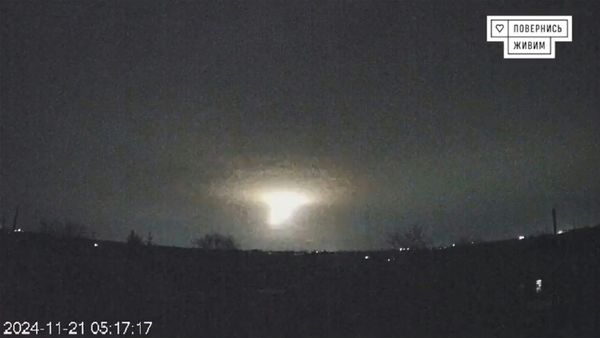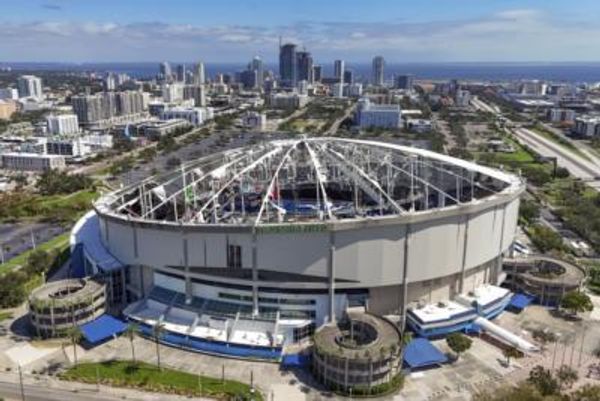
Vatican City (AFP) - Former pope Benedict XVI, who in 2013 became the first pontiff in six centuries to step down as head of the Catholic Church, died Saturday at the age of 95, the Vatican announced.
Pope Francis will Thursday preside over the funeral in St Peter's Square of the conservative German theologian, born Joseph Ratzinger.
"With sorrow I inform you that the Pope Emeritus, Benedict XVI, passed away today at 9:34 in the Mater Ecclesiae Monastery in the Vatican", where he had lived since he resigned, spokesman Matteo Bruni said.
Benedict had shocked the world in 2013 when he became the first pope since the Middle Ages to step down, citing his declining mental and physical health.
His death brings to an end an unprecedented situation in which two "men in white" -- Benedict and Francis -- had co-existed within the walls of the tiny city state.
Tributes poured in for a man described by Archbishop of Canterbury Justin Welby as "one of the greatest theologians of his age", a message echoed by the head of the Russian Orthodox Church, Patriarch Kirill.
UN chief Antonio Guterres praised the former pontiff for his "tenacious commitment to non-violence and peace", while Italian Prime Minister Giorgia Meloni said he was a "giant of faith and reason".
But his staunch defence of traditional Catholic teaching on abortion, euthanasia and gay marriage alienated many Catholics, while his eight-year papacy was marred by in-fighting at the Vatican and the scandal of clerical child sex abuse.
Benedict's body will be displayed from Monday morning in St Peter's Basilica to allow the faithful to pay their respects, ahead of a "solemn but simple" funeral, the Vatican said.
A great pope
Benedict's death was met by sadness among many holiday visitors Saturday to St Peter's Square.
"We are distraught," said Davide Di Tommaso, 30, from the southern Italian region of Molise, adding: "He was truly a great pope."
Benedict's health had been declining for a long time, and he had almost entirely withdrawn from public view when the Vatican revealed on Wednesday that his situation had worsened.
That same day, Francis called for Catholics worldwide to pray for him and he received the last rites, a Catholic tradition for the dying.
Benedict is the first pope to die since the long-reigning and popular John Paul II, whose funeral mass in 2005 in St Peter's Square drew an estimated one million people, including heads of state.
In-fighting and scandal
Born on April 16, 1927 in Marktl am Inn, in Bavaria, Benedict was 78 when he became the first German pope of the modern era.
Flags on the town hall flew at half-mast Saturday in Marktl, where a special mass was organised at the church where he was baptised.
Local Karl Michael Nuck, 55, said his death "was probably a deliverance", while praising Benedict for resigning and defending his record.
Long close to John Paul II and a senior cardinal in the Catholic hierarchy, Benedict was a leading candidate to become pope in 2005 -- but later said his election felt "like the guillotine".
Unlike his successor Francis, a Jesuit who delights in being among his flock, Benedict was a conservative intellectual dubbed "God's Rottweiler" in a previous post as chief doctrinal enforcer.
He struggled to contain numerous scandals in the church during his papacy, not least the worldwide scourge of clerical sex abuse and decades of cover-ups.
The abuse scandal overshadowed his final months after a damning report for the German church in January 2022 accused him of personally failing to stop four predatory priests in the 1980s while archbishop of Munich.
He denied wrongdoing and the Vatican strongly defended his record in being the first pope to apologise for the scandals, who expressed his own "deep remorse" and met with victims.
Conservative standard-bearer
There were other controversies, from comments that angered the Muslim world to a money-laundering scandal at the Vatican bank and a personal humiliation when, in 2012, his butler leaked secret papers to the media.
He will be remembered for his theology, but "he didn't have the mental strength to be pope", noted Italian Vatican observer Marco Politi.
Yet after he quit, Benedict remained a flag-bearer for the conservative wing of the church.
In an interview in March 2021, he said "there is only one pope", but acknowledged "fanatical" supporters who refused to accept his resignation.
With his death, those who battled Francis' more liberal outlook "lose a living symbol", Politi told AFP.







